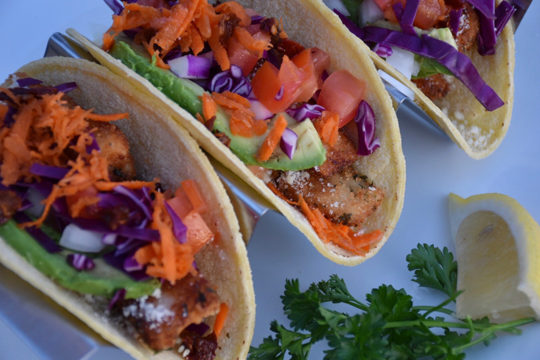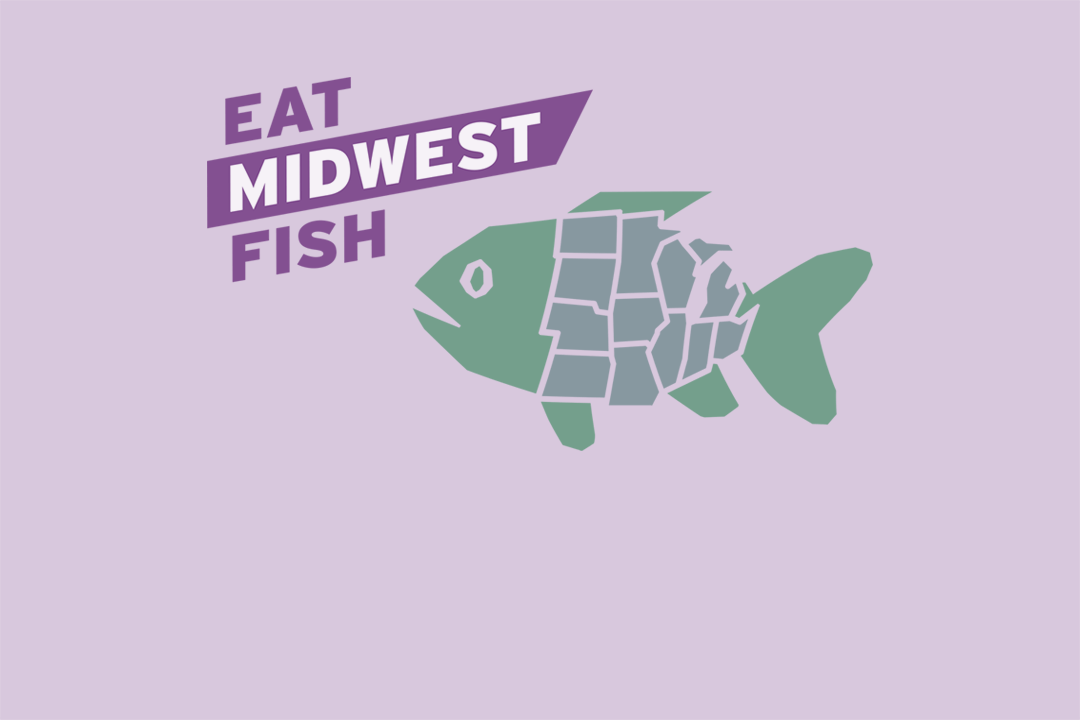Why is eating seafood during pregnancy important?
Developing human infants cannot make enough DHA to meet their developmental requirements for optimal brain, eye, and nervous system development1,2,3. Instead infants get DHA from their mothers or fortified formula. When expecting and breastfeeding mothers eat foods that contain DHA, like fish, their bodies transfer these fatty acids to the developing infant through the placenta or breast milk. That is why expectant and nursing mothers should consider eating foods containing omega-3 fatty acids, like DHA.
Here are a few examples of how babies may benefit from omega-3s.
- Aids brain development and function1
- Boosts I.Q.2
- Increases brain size3
- Helps in the development of health eyes1
How much fish should I eat?
Experts recommend pregnant women, women who may become pregnant, and nursing mothers eating between 8 and 12 ounces of omega-3 fatty fish or seafood per week.4
What types of Midwest produced fish have the most Omega-3s?
The best choices for fish and shellfish to eat during pregnancy are both high in omega-3 fatty acids and low in contaminants like mercury and polychlorinated biphenyls (PCBs). Good fish choices are low in contaminants, but they do not contain as much omega-3 content as best choice fish.5
Best Choices
Lake Whitefish (wild-caught)
Rainbow Trout (farm-raised)
Salmon (wild and farm-raised)
Good Choices
Catfish (farm-raised)
Florida Pompano (wild and farm-raised)
Shrimp (farm-raised)
Tilapia (farm-raised)
Fish to avoid
Fish captured from the wild that may contain high levels of contaminants, like mercury and polychlorinated biphenyls (PCBs), should be avoided if you are pregnant, may become pregnant, or are breastfeeding. Check fish consumption advisories to learn more about what recreational fish are safe to eat and what fish you should avoid during pregnancy. For more information on dietary recommendations and restrictions concerning commercially available fish, check the Fish for Your HealthTM wallet card developed by Purdue University researcher and food safety professor Dr. Charles Santerre.
Is it safe to eat raw fish if you are pregnant?
The FDA recommends that pregnant women, infants, and children should not eat raw or refrigerated smoked fish.
Eating raw, undercooked, and refrigerated smoked fish can expose both mother and unborn infant to harmful parasites and pathogenic bacteria.
Women experience changes in their immune systems during pregnancy. Suppression of the immune system increases the risk of developing infections from foodborne bacteria— like listeriosis,— and increases the risk of miscarriage, stillbirth, uterine infections, and preterm delivery.
While freezing fish before eating raw or uncooked fish does kill parasites, it does not kill all pathogenic bacteria. According to the 2015-2020 Dietary Guidelines for Americans and FDA recommend cooking fish, to an internal temperature of 145° F kills both parasites and foodborne bacteria, making seafood safe to eat for pregnant women.
Additional Resources
FDA & EPA Advice about Eating Fish
Is it safe to eat seared, smoked, or raw fish during pregnancy?
1Santerre, C.R. 2008 Balancing the risk and benefits of fish. Journal of Foodservice 19:205-212
2FAO/WHO, 2011. Report of the Joint FAO/WHO Expert Consultation on the Risk and Benefits of Fish Consumption. Rome, Food and Agriculture Organization of the United Nations: Geneva, World Health Organization, 50 pp.
3Tan MD, MPH, Z.S. Red blood cell omega-3 fatty acid levels and markers of accelerated brain aging. Neurology. 2012 Feb 28;78(9):658-664.
4USDA – Agricultural Research Service. 2020. Dietary Guidelines Advisory Committee. 2020. Scientific Report of the 2020 Dietary Guidelines Advisory Committee: Advisory Report to the Secretary of Agriculture and the Secretary of Health and Human Services. U.S. Department of Agriculture, Agricultural Research Service, Washington, DC.. Available at: https://www.dietaryguidelines.gov/2020-advisory-committee-report
5Fish4Health wallet card. Available at: https://www.purdue.edu/hhs/nutr/fish4health/Walletcard/walletCard.html



